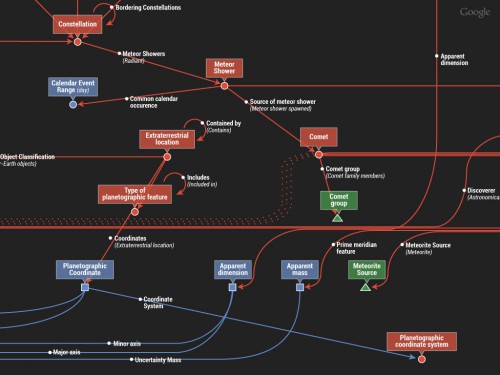I believe search engine optimization (SEO) is best and primarily served via the content you write. If you believe that, you may stop reading; but if you aren’t convinced…
People seek entertainment and information the same way online as they do in the real world: by asking questions. The only real difference is that a lack of complete sentence structure and punctuation won’t get in your way online. *wink*
You and I may differ wildly in terms of our demographics, interests, and needs (for example, perhaps you are a 20-something male interested in the latest tech gadget while I’m a 40-something female who may be looking up some obscure silent film actress), but we each end up doing the same thing. We each find ourselves at some search box, be it at a search engine, sales marketplace, or favored site, typing in text and clicking to get the results. Those words we typed are the questions we have; on the Internet, these queries are called “keywords.”
What Google and other search engines, including internal search engines on individual websites, try to do is provide the best possible answers to our questions, the most relevant information that matches our query. Search engines are based on programs or algorithms which do their best to interpret what a searcher wants and, attempting to replicate human understanding, gives it to them based on the text or written content it can find.
In trying to take the search as question and help the person find the answer, Google et al employs not just what you say about your site (meta tags, descriptions, folksonomy, etc.), but what your site actually says. In other words, it ‘reads’ your site.
Every word in every post and page.
Including your links out to other sites (because if you’re not having conversations with others, you might just be a mad mumbling fool talking to himself).
To check how much of authority or credibility a possible answer has, search engines also look to see not only who links to that page or post — but for what. And just how do those links get there? By people who read your content!
Ah, the power of the written word.
But it doesn’t end there.
Back to you and I as question seekers on the Internet…
After we’ve posed our questions and received a list of possible answers, we evaluate the responses to our questions.
We each use our own individual criteria for trustworthiness, we have different ideas of what’s funny or entertaining, etc., but we each sort through the options or answers provided to us and make determinations about what we find. And what do we questioning searchers use to evaluate the possible answers? We read the content.
First, we read the brief snippet of content shown with the link, as grabbed by the search engine; if that passes the mustard, we click and go on to read more of that page or post. If that’s what we seek, we likely read the whole post or page — maybe even reading more pages at the site, clicking what’s recommended there, etc. If it’s still not the answer we are seeking, we go back to the list of possible answers or try phrasing our question differently and begin our search for the truth all over again.
This is why written content is so important; what you write is how you are found and how your site is evaluated.
Believe it or not, search engines are our friends and partners in our quests, so there’s no point in trying to “beat” Google or any search engine with SEO tactics.
What’s the point in trying to divert those seeking information on silent film stars over to a site dedicated to tech gadgets — or vice versa? Annoyance?
You can give yourself a little nudge with some basic use of technology to assist in SEO; but frankly, your time is best spent on creating unique content that will address the needs and interests of the question seekers.

